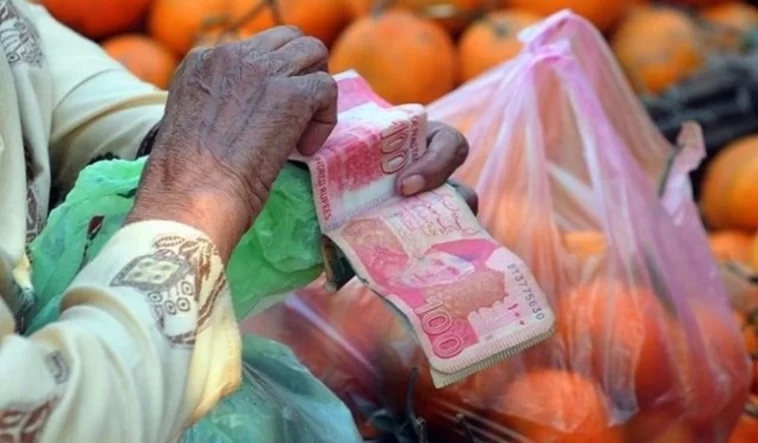Inflation has reached its highest level in 48 years. It is estimated that inflation increased by 0.17% during the week ending February 9, 2023, and that it increased by 34.83% on an annual basis.
Among the essential commodities, 29 items experienced price increases, including potatoes, garlic, rice, and liquefied petroleum gas (LPG), while 5 items experienced price declines, including onions, sugar, and flour. Potato prices increased by 7.15%, chicken meat by 6.94%, and LPG by 3.06%. Onions decreased by 9.83%, tomatoes by 5.40%, and sugar by 0.31%.
According to the Sensitive Price Index (SPI), the inflation rate for those earning up to Rs17,732 per month was 31.56%. The rate was 32.55% for those earning between Rs17,733 and Rs22,888 per month, and 34.86% for those earning between Rs22,889 and Rs29,517 per month. Inflation rates between Rs29,518 and Rs44,175 per month were 36.36%, and for those over Rs 44,176 per month were 35.83%.
The country’s economy is facing a balance of payments crisis and struggling to service high external debt. Recently, Pakistan and the International Monetary Fund (IMF) failed to reach a staff-level agreement within the stipulated time to revive the $6.5 billion bailout package. Both parties, however, agreed on a set of measures that may lead to a deal.
Despite efforts by Finance Minister Ishaq Dar to hold back-to-back meetings, the government was unable to provide adequate and convincing assurances to the IMF mission, led by Nathan Porter, resulting in the 10-day mission ending without a staff-level agreement.
Pakistan’s economy continues to suffer from inflation, with the highest rate since May 1975, causing significant strain on its citizens.


